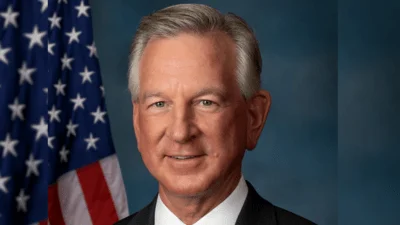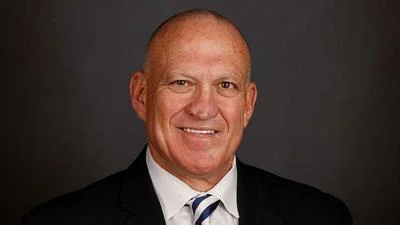Simply put, soil carbon is part of the organic matter component of soil. Carbon in the soil is an important source of food for microorganisms in the soil.
“One handful of healthy soil contains billions of microorganisms—more microorganisms than there are people on earth,” said Audrey Gamble, an Alabama Cooperative Extension System soil scientist. “These microorganisms in soils are important for recycling nutrients for plant growth, purifying water and controlling pathogens.”
Soil Makeup
Soil includes four components: minerals, air, water and organic matter. Organic matter is composed of dead and living plant and animal materials—and is rich in carbon. Organic matter gives soil a dark rich color and performs many important functions in the soil, such as increasing the amount of nutrients and water a specific soil can hold.
Gamble, who is also an assistant professor in the Auburn University College of Agriculture’s Department of Crop, Soil and Environmental Sciences, said soil health is an important aspect of alleviating climate change.
“In a changing climate, it is important to find ways to reduce greenhouse gas concentrations in the atmosphere,” Gamble said. “Increasing soil carbon storage is one step that we can take to reduce carbon in the atmosphere and mitigate climate change.”
Conservation Practices
Gamble said reducing tillage is a great way to build soil carbon.
“Tillage speeds up decomposition of soil organic matter, releasing carbon back into the atmosphere,” she said. “So by reducing tillage, we can prevent or slow down the loss of carbon. Another excellent way to build soil carbon is with cover crops.”
Cover crops are crops that are not harvested. These are used specifically to protect the soil from erosion.
Gamble said cover crops build carbon by returning organic matter to the soil.
Old Rotation at Auburn University
“The Old Rotation at Auburn University is a great example of how agricultural management practices can affect soil carbon storage,” Gamble said.
The Old Rotation is a historic experiment that began in 1896 which contains two contrasting treatments, either no cover crop for the last 125 years or a winter cover crop for the last 125 years. The plots with cover crops store an additional 10 tons of carbon per acre compared to plots without a cover crop.
Measuring Soil Carbon
“We measure carbon in the soil by collecting soil samples and running them on a machine that heats the soil to high temperatures,” Gamble said. “The heat actually turns all of the carbon in the soil into carbon dioxide. So, really to measure carbon in the soil we measure the carbon dioxide as the machine heats the soil samples.”
She said it takes years—or even decades—to measurably build soil carbon.
“Soil type affects how long it takes to build carbon,” Gamble said. “For example, it takes longer to build carbon in sandy soils than in soils containing a lot of clay.”
Climate also affects soil carbon storage. It is more difficult to build in carbon in warm, humid climates.
Down to Earth: Agriculture Sustains Alabama
Alabama Extension is getting Down to Earth. Why? Because agriculture sustains Alabama. Whether your ag experience is in the grocery store, in the classroom or as your profession—Extension has a resource for you.
We are proud to be partnering with the Alabama Agribusiness Council, the Alabama Cattlemen’s Association, the Alabama Department of Agriculture and Industries, the Alabama Farmers Federation, the Alabama Poultry and Egg Association, the Alabama Forestry Commission, Sweet Grown Alabama and the Alabama Association of RC&D Councils.
Alabama Extension’s Down to Earth resources are available on www.aces.edu/go/DowntoEarth.
Original source can be found here.






 Alerts Sign-up
Alerts Sign-up